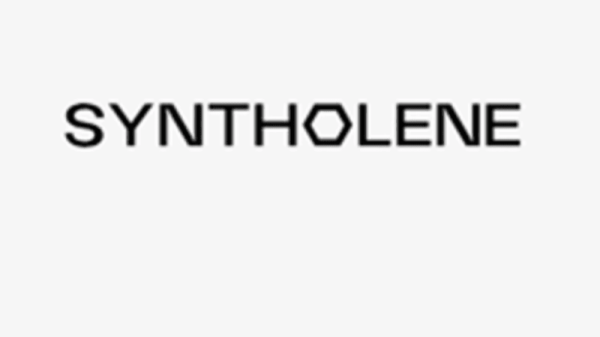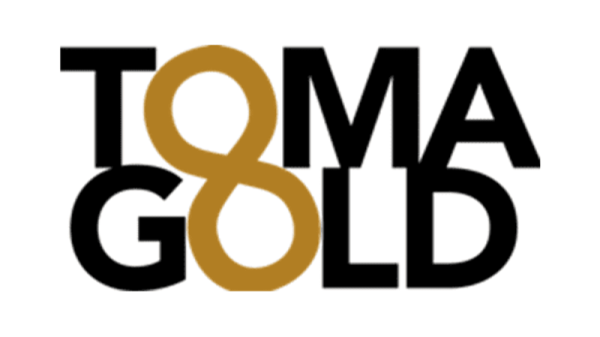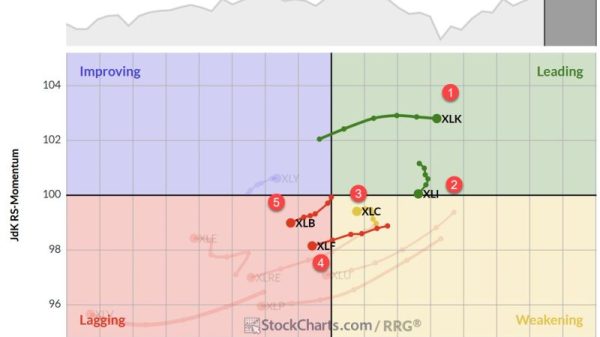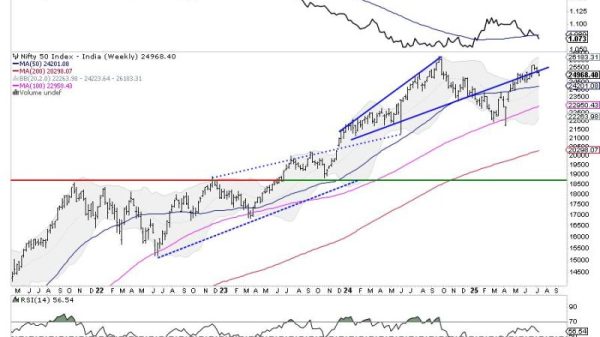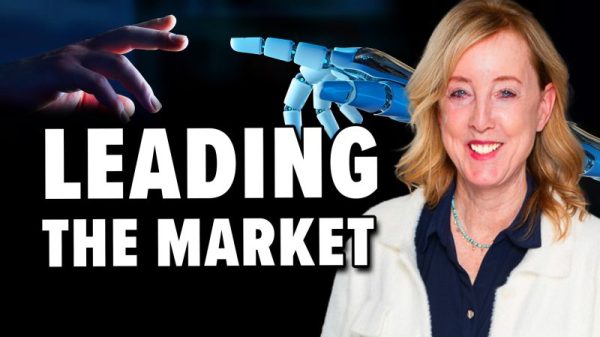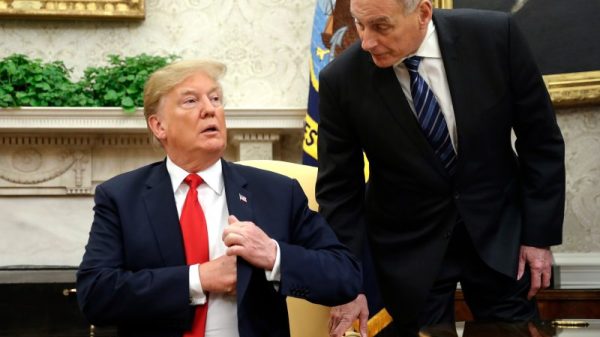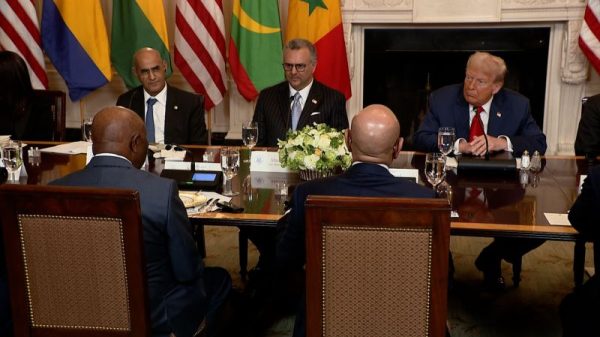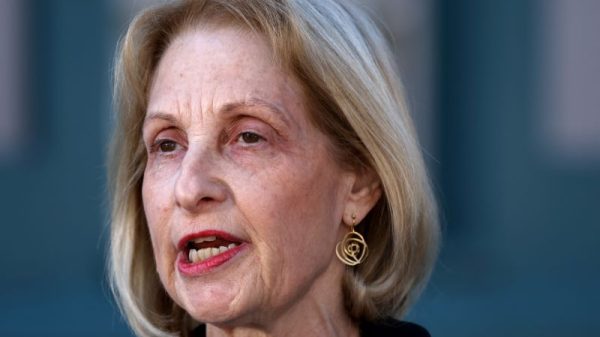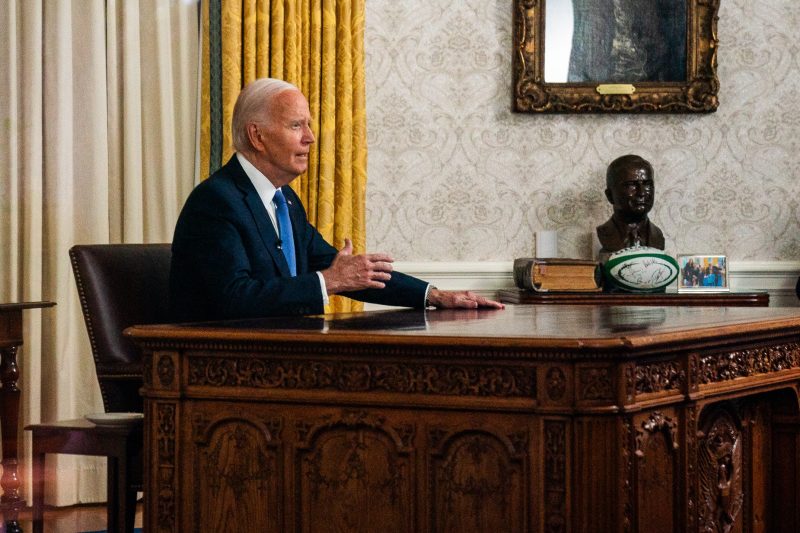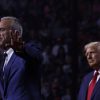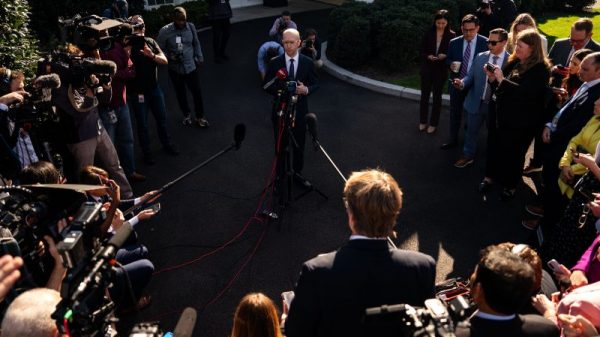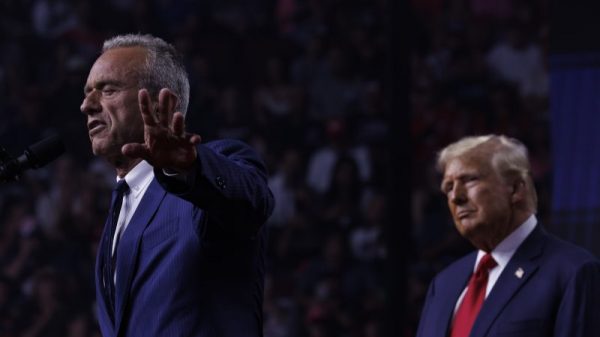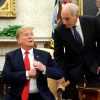CHICAGO — President Joe Biden, through a lifetime of triumph and tragedy, has learned, in his words, to become a respecter of fate. Four years ago at this time, he felt like his biography had finally aligned with history: He was the right man at the right time in the right place.
Now, as his party gathers to rally around a new nominee, he is no longer fate’s favorite. He will speak on the first day of the Democratic National Convention on Monday, and then he plans to leave for a family vacation as a jubilant convention goes on without him.
By the time the balloons drop on Thursday night before a rapturous crowd in Chicago, he will be long gone. And while he had hoped this week would be about rallying the party around his vision for a second term, he has now reoriented himself around bolstering Vice President Kamala Harris, a recognition that his legacy is deeply tied to whether she can win in November.
Biden, who spent the weekend at Camp David working on his speech with senior aides, replied when asked on Friday night what his message to Democrats would be: “Win.”
When he takes the stage on Monday night, Democrats will mark Biden’s half-century as one of their leaders. He will be surrounded by family; first lady Jill Biden will give remarks; and he will enjoy tributes from various speakers. Delegates will receive a gift bag that includes “Cup of Joe” coffee and digital banners will read “Spread the Faith,” in reference to a line he frequently delivers at the end of speeches. A group of his campaign staffers from 2020 are planning to gather for a party on Monday night.
But some of the same people enthusiastically applauding the president’s speech Monday will be party officials who just weeks ago pushed him to step aside against his will, convinced he was no longer the party’s future. When the applause dies down, the Democrats will move on, making a visible transition to their next generation as Biden disappears to a vacation spot in California.
It will be a discordant coda to a lifetime in politics and, like much of Biden’s life, a moment filled with competing emotions.
The night will honor what many Democrats see as a historic presidency, but it will also reflect how rapidly Biden’s fortunes have plummeted in a matter of weeks. First came a dismal debate performance that, for many, called his competence into question. Then an attempt to cling to power. A pressure campaign from an angst-ridden party. A painful decision to step aside. And now, a speech to boost a successor.
Biden has attended all but one Democratic convention over the past half-century. He saw floor fights and deep party divisions in 1980. He witnessed soaring oratory from an up-and-comer named Barack Obama in 2004 — and then, four years later, gave a speech as Obama’s running mate. But he has never experienced a convention quite like this one, where he himself plays an unprecedented role.
This convention was supposed to be about renominating Biden and positioning him for another four years at the pinnacle of world power. Instead, it is about passing the torch. A few weeks ago, Biden was thinking about a second-term agenda; now he is contemplating how to live life outside political office.
If Biden’s insistence on running for reelection was cast by many as hubris, his decision to step aside is being celebrated as an act of humility for an 81-year-old who spent much of his life chasing the presidency.
“The power of the presidency is incredible. To step away from Air Force One and the White House and the bully pulpit that comes with being president is an act of selflessness, and I’d say even self-sacrifice,” said Sen. Chris Coons (D-Del.), a longtime Biden confidant. “I think he comes to this with optimism. He is perfectly clear that nothing is more important than defeating Donald Trump a second time and defending democracy.”
Biden’s remarks Monday are expected to focus on the past four years, reflecting on how far the country has come since he took over amid a global pandemic, an economic collapse and deep political division. The president faces a difficult balancing act between celebrating his own role in moving the country ahead and paying tribute to his vice president and heir apparent.
As he has worked on the speech, Biden has focused on themes that have guided his presidency, aides say. He plans to talk about his attempts to bolster the middle class. He also will discuss the fight for American democracy — and the threats he believes Trump poses to it — as well as his attempt to promote diplomacy rather than an “America First” ideology.
Four years ago, Biden accepted the nomination at a virtual convention, and rarely during his presidency has he attracted boisterous crowds. But on Monday his friends expect there will be a partywide tribute, with those who just weeks ago pushed him aside now rising to cheer him.
“My hope is that he gets the longest sustained applause of any leader to address a convention in American history,” Coons said. “He certainly deserves it.”
In recent weeks, the president has dramatically lowered his profile — no small matter for a lifelong politician — as he accepts that the best course is to yield the spotlight to Harris. His public schedule is lighter these days, and he seems to avoid anything that could be seen as counterprogramming at a time when Harris has taken center stage with several adulatory rallies.
“It’s the next logical moment in a process he set in motion by deciding to leave the race and endorse her,” said Ron Klain, Biden’s former White House chief of staff, who had urged his former boss to stay in the race until the end. “It’ll include the speech Monday night, and then him campaigning for her this fall.”
Biden has made peace with his decision, associates say, even if he still harbors some resentment toward those who he feels abandoned him when he was convinced he could defeat Trump. The president and his circle believe he was wounded politically not just by his debate performance, but by the ensuing weeks of second-guessing from leaders of his own party.
But since ending his campaign, he has signaled that is fully on board with helping Harris, a recognition that his legacy is tied to hers and that she is now the vessel for his ultimate goal of defeating Trump a second time.
“I don’t think there’s any bitterness,” Klain said. “I think there’s a sense of resolve, of determination to get the job done, and determination to make sure she’s elected and Trump isn’t.”
The convention’s planners have had to alter their lineup since Biden pulled out, but they say it will not be radically different from what they spent a year preparing. One person involved in organizing the event, speaking on the condition of anonymity to discuss internal planning, described it privately as the same airplane — with the same layout, color scheme and seating capacity — but with different co-pilots and different video features offered on board.
While the earlier plans called for narration touting legislation that Biden signed into law, for example, the language will now be altered in some cases to highlight how Harris stood with Biden to get it done.
“I think he does want to set a tone. I think he’ll want to keep uniting the Democratic Party because of this existential threat, and what a Trump presidency means to the country,” said Ted Kaufman, one of Biden’s closest friends, who will be with the president on Monday.
“This is in no way a goodbye speech,” Kaufman added. “It’s a wonderful opportunity for him to do what he does well and what is incredibly important to him: to urge that Harris gets elected president, and Trump doesn’t.”
But if it is not a goodbye speech, Monday’s address nonetheless is likely to be one of Biden’s few remaining opportunities to speak before such a large national audience. It is something of a wistful bookend to a national political career that began in 1972, when he burst onto the scene as a 29-year-old senator-elect notable for his youth and energy.
“For the longest time, I was too damn young,” he said to laughter on Thursday, speaking at a joint event with Harris. “Now I’m too damn old.”
The stairs leading to the convention will be inscribed with quotes — including one from Biden, “History is in your hands,” which comes from Biden’s Oval Office address as he explained his decision to end his reelection bid.
Biden has attended almost every Democratic convention since 1972. In 1976, he was a floor manager for Jimmy Carter’s presidential campaign. In 1980, he spoke on the convention’s opening night, denouncing the “false hope,” “hypocrisies” and “hollow dreams” that were ostensibly being offered by Ronald Reagan, as the Delaware delegation held aloft a banner that read, “Biden in ’84.”
That speech was carried live by only one network — CBS — as others were focused on the news that Sen. Edward M. Kennedy (D-Mass.) was ending his primary challenge to Carter, who was president at the time.
The only convention Biden missed was in 1988, when he was recovering from a brain aneurysm. As a rising figure in the party, he often received prime-time speaking slots. In 2004 he used his remarks to quote William Butler Yeats, a favorite Irish poet.
In 2008 and 2012, Biden was a featured speaker as the running mate of Obama, and was introduced by his son Beau. In 2016 he used his speaking slot to praise Democratic nominee Hillary Clinton, warn of the dangers posed by Trump, and offer an apparent farewell — only to return four years later as the party’s nominee.
That 2020 convention was one of the most unusual in the history of the Democratic Party, a virtual event at the height of the coronavirus pandemic.
“No generation ever knows what history will ask of it. All we can ever know is whether we’ll be ready when that moment arrives,” Biden said at that gathering. He spoke of four crises that he said were facing the United States: covid-19, racial inequity, economic collapse and climate change.
“So the question for us is simple: Are we ready?” he said. “I believe we are. We must be.”
The moment now, nearly four years later to the day, is far different than it was then. And Biden has been forced to recognize that what history has asked of him, at this moment, is to step aside.

